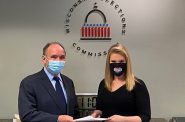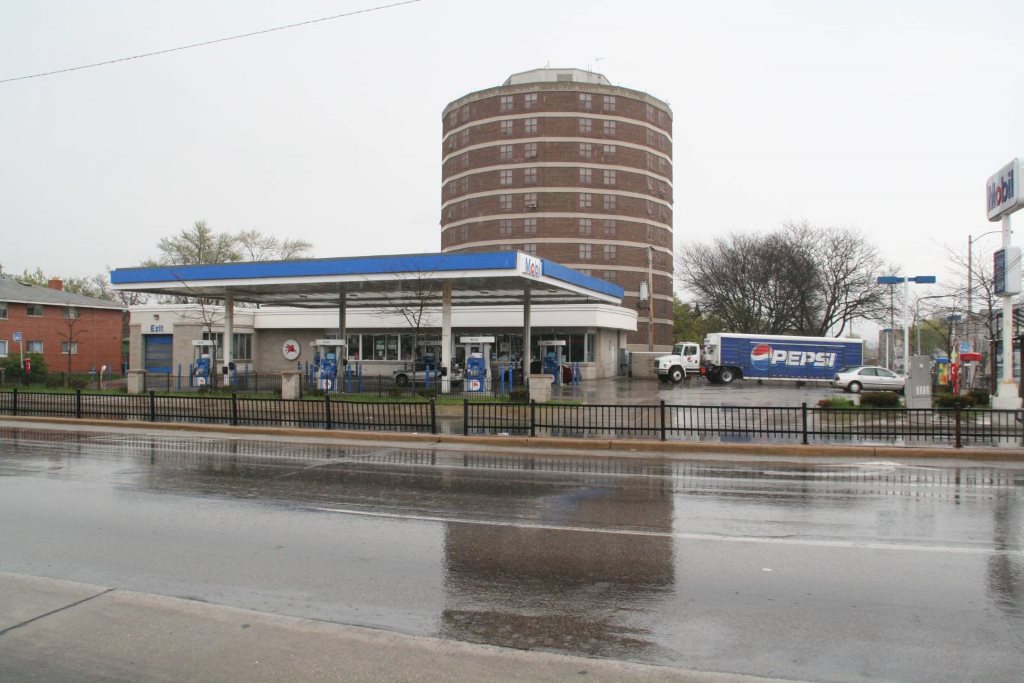How to Grow the State Economy
The proposed state budget, and last two budgets, are missing opportunities to grow Wisconsin’s economy.
Wisconsin economic policy is built on two essential tenets of supply-side economics: that tax cuts will always spawn large increases in business activity and that the public sector is inherently wasteful. These two notions have served as the underpinnings for Wisconsin’s last three budgets; because both are false, it is not surprising that their promised results have not been realized. Currently, the Bureau of Labor Statistics reports that the rates of economic and job growth in Wisconsin are well below national averages. Worse still, few of the jobs added to the workforce pay more than $12.50 per hour.
In their scramble to close the projected state deficit in a responsible way, the Joint Finance Committee has endorsed restoration of $127 million in proposed cuts for K-12 education, but has only restored $50 million of the proposed $300 million in cuts slated for the UW System. Early on there was hope for an uptick in projected revenue, but that has been dashed by the latest Legislative Fiscal Bureau estimates.
The growth of good paying/family-supporting jobs requires sufficient demand for goods and services. As part of the effort to shrink the public sector, the past two budgets have led to a reduction in the number of Wisconsin’s public sector workers and a pay cut for those who remained. Consequently, the demand-side spending power of tens of thousands consumers was substantially reduced. To grow the Wisconsin economy while shrinking its public sector will require that overall demand expand by more than the reduction in demand by public sector workers.
Supply-siders asserted that tax cuts would replace the reduced public sector income and demand for goods and services by stimulating the “job creators.” However, profit-seeking business decision-makers will convert their tax cut into business expansion and more jobs only if they perceive that to be the most profitable use of that money. When demand for what they’re selling is sluggish, they are more likely to convert some or all of their tax cut into alternative spending, much of it out of the state economy, such as financial investments or simply high-end consumer spending.
Several sources of revenue are available that could have eliminated the “need” for the proposed cuts in education. These include freezing the phase-in of additional property tax cuts as well as those scheduled for manufacturers and farm operators. Of greater impact would be the reversal of the ideological rejection of federal dollars earmarked for Medicaid expansion. That reversal would infuse $345 million per biennium into the Wisconsin health care sector to improve the health of the working poor.
An increase in the gas tax would both add revenue as well as create proper incentives for efficient use of our road network. The current proposal to use borrowing to fund much-needed road repairs needlessly subsidizes drivers and encourages over-use. The gas tax works like any price, requiring drivers to treat the roads like a scarce resource. Roads deteriorate as they are used, so it makes sense that drivers should be made to pay for what they use.
Under the current proposal, borrowing to fix roads crowds out pro-growth borrowing to invest. For example, virtually all pro-growth business leaders claim a need for more university graduates in the STEM fields, yet STEM-related projects at both UW Madison and UW Milwaukee are being delayed in the proposed budget. If the road work were financed with the gas tax rather than increasing borrowing, we could shift borrowing capacity to more cost-beneficial investments like education.
William L. Holahan is emeritus professor and former chair of the Department of Economics at UW-Milwaukee. Charles O. Kroncke is retired dean of the College of Business at UWM. They are co-authors of “Economics for Voters.”
Op-Ed
-
Why Vote for MPS Funding Referendum
 Mar 30th, 2024 by Nehemiah Edwards
Mar 30th, 2024 by Nehemiah Edwards
-
Wisconsin’s Very Own Rudy Giuliani Should Not Oversee Judicial Ethics
 Mar 25th, 2024 by Richard Niess
Mar 25th, 2024 by Richard Niess
-
Voting at Wisconsin’s Universities Isn’t Easy
 Mar 17th, 2024 by Nicole Laudolff
Mar 17th, 2024 by Nicole Laudolff
















Great article. One can’t help but think that Walker’s approach to the state economy, as well as that of many of the outstate legislatures, is more about division (winning elections) and ideology and less about growing the economy. Pitting rural against urban, elitists against hard working folk, public workers against private, and stopping the liberal indoctrination of our children at both the K-12 and post secondary levels of education. To me, it feels like a real low brow, dumbed down approach to government.
Walker will say and do anything to get elected. The heated rhetoric and division is doing so much damage to this state. For example, Bob Donell – WCD- (not sure how you spell his name) is a respected mind in the conservative community and editor of the Conservative Digest. But every time I read his comments I’m absolutely shocked at how dumb he seems to be. I know he’s just a soldier and partisan hack, but this is what is has come to.
I do not believe the goal is to grow the state’s economy but rather to advance a social conservative agenda whether its good for the economy or not. That means isolating the cities and tearing down public education at all levels.
The current regime uses ideology insofar as it can justify austerity to channel public largess to the few. But they are willing to ditch their small government rhetoric the minute it does not jibe with a voting bloc they need-social conservatives, angry white men.
Talking about demand with this crowd falls on deaf ears because in the end they are not really concerned about growth or the common good. All they want to do is transfer wealth, upward.
We used to march against greedy corporations and “The Man”, now we march against teachers!!!! How did this happen?
Walker and the Republican strategy has always been divide and conquer tactics and pit everybody against each other fighting over crumbs. Fear is used as one of the tools. A recent example is to cut $300 million from the UW system, and put back $50 million for the appearance of being a solution. In the meantime, Walker appointed regents can fire who they want to in a state of fear with staff based on politics. Same thing in a fear based public school system as the chair numbers go down and it becomes every person for themselves.
Walker used public pay cuts. education cuts, to shovel funds to his wealthy donors, WEDC, and road builders in his pay to play scheme.
Walker has created a toxic mess in WI that will take a new administration years to clean up after. The downward spiral continues.
There are many common sense solutions to spur economic development with jobs. One area that was doing rather well in 2010 was the energy efficiency and renewable energy consumer demand side upgrades. Funding levels for Focus on Energy were frozen by Walker’s newly appointed Commissioners, and a new Management team owned by the Kochs was put in charge. The funding levels in this area needs to be tripled over time.
Walker also passed on the $800 million grant for transit that would have pumped jobs into the state.
Funny, Doyle tried, worked great??? Obama is trying it, Works great? 10.8% unemployment according to Bernie Sanders?? No wonder Milwaukee keeps going downhill.
What we are seeing is the decade’s long application of disaster capitalism (since Reagan, doubled down on with Clinton/NAFTA…) and Walker being only the latest rendition of CLASS WARFARE with people like Robert Donhal “Bobby,” (as he has said he likes to be referred to as), NOT realizing that extreme conservatives are also the victims of divide and conquer politics just because Walker has an R pinned to his campaigning for the position of the potus (which deserves the lower case spelling).
Nothing Scott Walker has done since becoming, “governor,” can NOT be attributed to anything other than paving the way for his biggest patrons, the Koch brothers, to further enrich themselves and an investor class that none of us are part of.
We are in the grip of total fascism, government lackeys paving the way and accommodating corporate profiteers with every change to state law and attack on labor, women, the elderly and public trust natural resources and Walker is the key facilitator in WI. This is not too difficult to understand. Expect more of the same from Hillary, Bernie or any of the other candidates lining up to replace Barry Obombya.
Unregulated “free market,” capitalism is part of the “enemy,” we all face. Conservatives using the word “efficiency,” or “reform,” are in the CYA dance with the 1% devil at every utterance of the term. No meaningful economic stability, much less, “growth,” will ever come from the continued praying at the alter of capitalism.
Thanks for the forum.
Wisconsin Conservative Digest: Seriously?!? Do you remember the financial meltdown? Caused by the people with money, the ones that bankroll the Republicans and profit the most from their policies. Bush eased the home ownership rules and the rest followed. But that obviously had nothing to do with any of the issues Obama and Doyle had to deal with. Numbers were actually going up during the last year of Doyle’s budget. Then they slowed. It’s amazing that people still believe “it’s working” despite all the evidence to the contrary.
Change in mortgage rules was a Barney Frank/ Clinton program, change that bankrupted Fannie and Fredi. Clinto/Frank muscled banks into giving sup prime loans that they bundled, sold to Freddie and everyone else. Bush/ McCain worked against it but Frank blocked any changes.. That brought down the world economy with sub prime loans. Clinton did it in 1996, I thought it was good idea at that time.
Wall Street got into the mortgage game and bundled dad loans together and sod them.
Oops… not dad loans, but sub-prime loans.